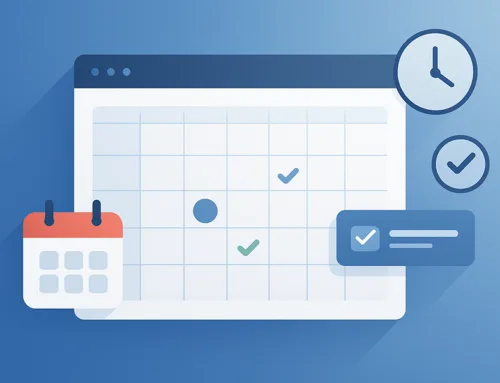If you’re considering developing SaaS applications like Invoice Ninja, Zoom, or Slack, selecting the right framework is crucial. Laravel, a prominent PHP framework, stands out for SaaS app development due to its robust features such as validation, routing, file storage, built-in MVC, and CLI support. Laravel simplifies the complexities of SaaS development with its pre-built tools and efficient subscription management. Before hiring Laravel developers for your project, let’s explore why Laravel is an excellent choice for SaaS app development.
What is Laravel?
Laravel is a free, open-source PHP framework for building modern web applications. It was created by Taylor Otwell in 2011 and has since gained a massive following in the development community. Laravel is known for its elegant syntax, powerful tools, and robust features that make web development more accessible and efficient.
One of the standout features of Laravel is its MVC (Model-View-Controller) architecture, which allows for a clear separation of concerns, making the codebase easier to manage and scale. Laravel also comes with built-in tools for routing, authentication, and database management, reducing the time and effort required to develop complex applications from scratch.
What Is SaaS?
Software as a Service (SaaS) is a software delivery model where applications are hosted by a service provider and made available to customers over the Internet. Instead of purchasing and installing software on individual computers, users can access SaaS applications through a web browser, paying for the service on a subscription basis.
SaaS offers several advantages over traditional software models, including lower upfront costs, scalability, and automatic updates. Businesses can focus on their core operations while leaving the technical aspects, such as server maintenance and security, to the service provider.
Benefits & Limitations of Laravel for SaaS Development
Laravel is a powerful PHP framework that has gained significant traction for building modern web applications, particularly SaaS (Software as a Service) solutions. While it offers numerous advantages for SaaS development, it also comes with a few limitations. Below is an overview of both the benefits and limitations of using Laravel for SaaS development.
Benefits of Using Laravel for SaaS Development
Laravel is a PHP framework with lots of benefits that can be applied to SaaS development, such as:
- Scalability: Laravel is built with scalability in mind, making it an ideal choice for SaaS applications that need to grow with the business. Laravel’s modular structure allows developers to add features and functionalities as the application evolves, ensuring that it can handle increasing user demands.
- Security: Security is a top priority for any SaaS application, and Laravel excels in this area. The framework comes with built-in tools for authentication, encryption, and protection against common web vulnerabilities such as SQL injection and cross-site scripting (XSS). Laravel’s security features help safeguard sensitive data, giving businesses peace of mind.
- Rapid Development: Laravel’s extensive library of pre-built components and tools accelerates the development process, allowing developers to build SaaS applications quickly and efficiently. Features like Laravel’s Blade templating engine and Eloquent ORM (Object-Relational Mapping) simplify common tasks, reducing the time and effort required to develop complex functionalities.
- Community Support: Laravel boasts a vibrant community of developers who contribute to its ecosystem through tutorials, packages, and plugins. This active community support ensures that developers can find solutions to common problems and stay updated with the latest best practices.
- Flexibility: Laravel’s flexibility allows developers to create custom solutions tailored to the unique needs of a business. Whether it’s integrating third-party services, building APIs, or implementing complex business logic, Laravel provides the tools and flexibility needed to deliver a high-quality SaaS application.
Limitations of Using Laravel for SaaS Development
- Learning Curve: While Laravel is known for its elegant syntax, it may have a steep learning curve for developers who are new to PHP frameworks. However, once the initial learning phase is overcome, Laravel’s features make it easier to build and maintain applications.
- Performance: Laravel is built on PHP, which may not be as fast as other programming languages like JavaScript (Node.js) or Python. However, with proper optimisation and caching strategies, Laravel applications can achieve excellent performance.
Why Laravel for SaaS Application Development?
Laravel is made with speed and scalability in mind. Laravel has integrated capabilities for easily managing SaaS subscription processes. Additionally, Laravel may be built indefinitely and is scalable. It is therefore a fantastic option for entrepreneurs who want to develop SaaS solutions.
1. Proven Track Record
Laravel has a proven track record of being used in successful SaaS applications across various industries. Its reliability and robustness make it a go-to choice for developers looking to build scalable and maintainable SaaS platforms. Whether it’s a small startup or a large enterprise, Laravel provides the tools and infrastructure needed to support the growth and evolution of a SaaS business.
2. Comprehensive Ecosystem
Laravel offers a comprehensive ecosystem of tools and packages that streamline the development process. For instance, Laravel Forge simplifies server management, while Laravel Vapor provides serverless deployment capabilities. These tools allow developers to focus on building features rather than managing infrastructure, making Laravel for SaaS business app development a highly efficient process.
3. Seamless Integration with Third-Party Services
SaaS applications often require integration with various third-party services, such as payment gateways, email providers, and analytics tools. Laravel’s powerful API capabilities make it easy to integrate these services, ensuring that the SaaS application can provide a seamless experience for users. Laravel’s support for RESTful APIs also makes it easier to build and consume APIs, further enhancing the flexibility of SaaS applications.
4. Cost-Effective Development
Laravel’s extensive library of pre-built components and its ability to integrate with existing systems make it a cost-effective choice for SaaS development. Businesses can leverage Laravel’s features to reduce development time and costs, allowing them to bring their SaaS applications to market faster. Additionally, Laravel’s open-source nature means that businesses can avoid costly licensing fees, further reducing the overall cost of development.
5. Efficient Data Management
Data is at the heart of any SaaS application, and Laravel’s Eloquent ORM provides an efficient way to manage data in a relational database. Eloquent simplifies database interactions, allowing developers to perform complex queries with minimal code. This not only speeds up development but also ensures that the application can handle large datasets efficiently, making Laravel for SaaS business app development a wise choice.
6. Built-In Authentication & Authorisation
One of the key requirements for a SaaS application is managing user authentication and authorisation. Laravel provides built-in tools for handling these aspects securely and efficiently. Whether it’s implementing single sign-on (SSO), role-based access control (RBAC), or multi-factor authentication (MFA), Laravel’s authentication features make it easy to manage user access securely.
Examples of SaaS Applications Built Using Laravel
Laravel has been used to build a wide range of successful SaaS applications. Here are a few notable examples:
1. Invoice Ninja
Invoice Ninja is a popular invoicing and billing platform that helps freelancers and small businesses manage their finances. Built using Laravel, Invoice Ninja offers a range of features, including invoicing, expense tracking, and time tracking. The platform’s scalability and flexibility are a testament to Laravel’s capabilities in the SaaS space.
2. Attendize
Attendize is an open-source event management and ticketing platform built with Laravel. It allows event organisers to sell tickets, manage attendees, and track event performance. Attendize’s success highlights Laravel’s ability to handle complex functionalities and integrations, making it an ideal choice for SaaS applications in the event management industry.
3. Cachet
Cachet is an open-source status page system built with Laravel. It helps companies communicate incidents and downtime to their customers, improving transparency and trust. Cachet’s clean design and robust feature set demonstrate Laravel’s versatility in building SaaS applications across different industries.
Conclusion
Laravel has proven itself as a powerful framework for building SaaS applications, offering a range of benefits that make it a top choice for developers and businesses alike. Its scalability, security features, and comprehensive ecosystem provide everything needed to create a robust and maintainable SaaS platform. While there are some limitations, such as a learning curve and performance considerations, the advantages of using Laravel for SaaS business app development far outweigh the drawbacks.
Whether you’re building a simple SaaS solution or a complex, enterprise-level application, Laravel’s flexibility, efficiency, and community support make it an excellent choice for your project. With a proven track record and a wide range of successful applications built using Laravel, there’s no doubt that this framework is a strong contender for your next SaaS development venture.





